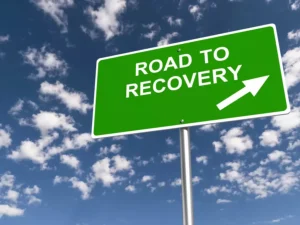
Short-term sobriety focuses on abstinence from alcohol, while long-term recovery encompasses physical, mental, and emotional stability. Withdrawal symptoms management during detox is the initial step, but without behavioral therapy and relapse prevention strategies, maintaining long-term sobriety becomes difficult. Structured aftercare programs, such as support groups and sober living homes, improve long-term outcomes.
Family and Friend Support
Individuals should be prepared to be uncomfortable during this period and have medical help available if needed. This is the period in which delirium tremens is most likely to occur, which requires immediate medical attention. If you or someone you know shows signs of delirium tremens, go to the emergency room immediately.
- Risks involve limited medical supervision, a higher risk of relapse, and the potential for unmanaged withdrawal symptoms if cravings intensify.
- Cognitive Behavioral Therapy (CBT) and Medication-Assisted Treatment (MAT) reduce relapse risk by addressing cravings, thought patterns, and behavioral triggers.
- Within 6 to 24 hours of the last alcoholic drink people enter the most intense phase of detox which marks the beginning of withdrawal.
What are the symptoms of alcohol withdrawal?
Get support from your doctor, friends, and family when you’re ready to stop drinking. That way, they can help you manage Halfway house the discomfort and respond quickly in case of a medical emergency. If you drink heavy amounts of alcohol for weeks, months, or years, you may have mental and physical symptoms when you stop or cut back. If you are thinking about quitting drinking, talk to your healthcare provider.

Alcohol Withdrawal Symptoms
This stage marks a shift from primarily physical symptoms to more psychological challenges. Support groups play a vital role in alcohol recovery by providing peer support, accountability, and structured guidance. Programs such as Alcoholics Anonymous (AA) and SMART Recovery help individuals maintain long-term sobriety through shared experiences and community reinforcement. For the remainder of your first week in detox, different withdrawal symptoms may come and go. This is also the timeframe where you’re most at risk for life-threatening symptoms such as delirium tremens. Withdrawal symptoms can begin to surface in as early as two hours after your last drink.
How Long Does Alcohol Detox Take?
Along with hydration, giving your body plenty of rest can help it cope with the withdrawal symptoms. Since alcohol is a depressant, your body becomes overstimulated as soon as you stop drinking, leading to feelings of anxiety, restlessness, and irritability. This restlessness may also make it difficult to fall asleep or stay asleep.
Tips for Establishing a Healthy Sleep Routine
It’s estimated that between 10% and 20% of people with ALD will develop cirrhosis. When your liver filters alcohol, some of its healthy cells die in the process. Alcohol overuse, or drinking excessive amounts of alcohol, can harm too many cells at once and cause irreversible damage.
The First 24-72 Hours (1-3 Days)

Individuals with a Alcohol Detox strong support system, such as friends and family, typically have an easier time quitting alcohol. Another factor that can affect the timeline is access to treatment options, such as therapy, medication-assisted treatment (MAT), and support groups like Alcoholics Anonymous (AA). Psychologically, you can look forward to feeling more emotionally resilient and confident, while physically, you’ll notice a healthier liver and a lower risk of many diseases, such as cancer and heart issues. Once you pass through the acute withdrawal symptoms, your body starts to stabilize. You may still feel tired and a little drained, but your body has now started to recover from the shock of the withdrawal.
- Rehabilitation programs, including inpatient rehab, Partial Hospitalization Programs (PHPs), and Intensive Outpatient Programs (IOPs), provide structured treatment environments for continued recovery.
- During the process, the mind and body go through several changes while adjusting to the lack of substance use.
- Recognizing this limitation, the FDA encourages developers of opioid2 and stimulant3 use disorder medications to discuss with FDA alternative approaches to measure changes in drug use patterns.
- A doctor or other treatment professional may evaluate for the above factors prior to making a recommendation for the level of detox care and detox timeline needed to keep a person safe and comfortable.
- Although some continue attending support groups or counseling for reinforcement, alcohol is no longer a disruptive force in their lives.
- You will be routinely assessed by health care professionals and have your vital signs taken frequently throughout the day.
- From there, you will be able to focus on other aspects of the recovery process such as different activities, therapies, counseling sessions and support options.
Alcohol Detox: A Step-by-Step Guide to the Medical Process
Never disregard professional medical advice or delay in seeking it because of something you have read on this website. In the event of a medical emergency, call a doctor or 911 immediately. This website does not recommend or endorse any specific tests, physicians, products, procedures, opinions, or other information that may be mentioned on the Site.
Can Someone Fully Recover From Alcohol Addiction?
- According to a study by the National Institute on Alcohol Abuse and Alcoholism (NIAAA) titled “Alcohol Withdrawal Management,” 2023, alcohol detox reduces withdrawal-related complications by 65% when conducted under medical supervision.
- Detoxing at home may seem like a cheaper, more convenient way to detox from alcohol, but it carries serious risks.
- At some point, it may be helpful to include your partner or family, too.
- Rehab programs can include a range of services from medical care and counseling to life skills training and help to prevent a relapse.
- Your risk of having a seizure is highest within the first 12 hours after stopping or reducing alcohol.
- Alcohol detox is the process of allowing the body to naturallyeliminate all alcoholfrom its bloodstream and adjust to the absence of alcohol.
Medical supervision, medication-assisted treatment (MAT), and supportive care reduce the risk of life-threatening complications. These complications occur in severe alcohol withdrawal cases, particularly in individuals with a long history of heavy drinking or prior withdrawal episodes. Patients with mild withdrawal symptoms, no history of severe alcohol dependence, and strong motivation for recovery are best suited for this detox type. The benefits of Social Detox include lower costs, improved coping strategies, and an emphasis on long-term recovery through behavioral modification. Risks involve the absence of medication to manage severe withdrawal symptoms, limited medical intervention in case of complications, and a higher likelihood of relapse if withdrawal symptoms become unmanageable.

Importance of Water in the Detox Process
Many people who go through alcohol withdrawal no longer have enough thiamine in their body. If your doctor feels you’re at risk, it will be important for you to have a thiamine supplement by IV for several days. Behavioral treatment programs are helpful for people who want to quit drinking.

